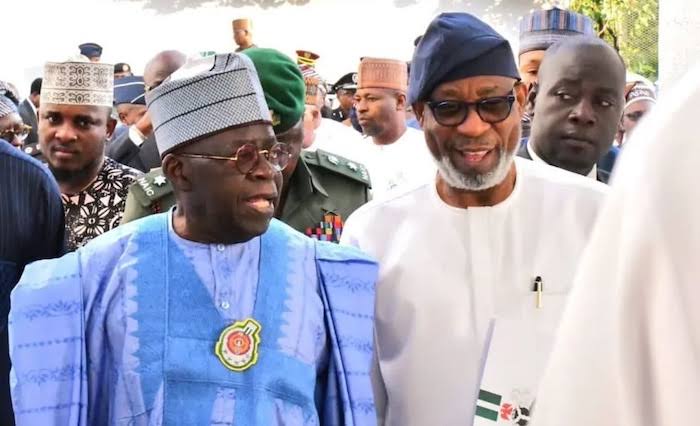The solid minerals sector has attracted over $800 million in foreign investment, driven by sweeping reforms under President Bola Tinubu’s administration. Dr. Dele Alake, the Minister of Solid Minerals Development, recently highlighted the unprecedented progress in a detailed briefing, underscoring how these reforms are positioning Nigeria as a global hub for critical minerals like lithium. With revenue soaring, major projects nearing completion, and international investors flocking to the country, Nigeria’s mining sector is emerging as a cornerstone of economic diversification.
A Revenue Renaissance
The financial impact of the reforms is nothing short of remarkable. In 2024, the solid minerals sector generated a staggering ₦38 billion in revenue, a dramatic increase from the modest ₦6 billion recorded the previous year. This exponential growth was achieved despite the sector operating with only 18% of its allocated ₦29 billion budget for the year. The momentum has carried into 2025, with the Mining Cadastral Office and Mines Inspectorate posting impressive figures of ₦6.9 billion and ₦7 billion, respectively, in the first quarter alone. These numbers reflect not only the sector’s growing economic significance but also the effectiveness of targeted policy interventions.
Mega Projects Fueling Growth
At the heart of this transformation are several high-profile investment projects, particularly in lithium processing, which are set to redefine Nigeria’s role in the global critical minerals market. A $600 million lithium processing plant near the Kaduna-Niger border is on track for commissioning this quarter, promising to create jobs and boost local economies. Meanwhile, a $200 million lithium refinery near Abuja is nearing completion, marking another milestone in Nigeria’s push for value addition. Additionally, two more lithium processing facilities in Nasarawa State are slated for commissioning before the third quarter of 2025, further cementing Nigeria’s position as a key player in the global energy transition.
These projects are not just about infrastructure; they represent a strategic shift toward local processing and value addition. Under Tinubu’s reforms, new mining licenses now mandate that minerals be processed within Nigeria, effectively ending the era of raw mineral exports. This policy ensures that the country reaps greater economic benefits from its natural resources, fostering industrial growth and job creation.
Global Investors Take Notice
The reforms have sparked significant interest from international investors, particularly from the United Kingdom, United States, Saudi Arabia, and the United Arab Emirates. Nigeria’s abundant lithium deposits and other critical minerals, vital for renewable energy technologies like electric vehicle batteries, have positioned the country as a strategic partner in the global race for sustainable resources. Notably, the United States is eyeing Nigeria as a viable alternative to China, which currently dominates the critical minerals supply chain. This geopolitical shift underscores Nigeria’s growing influence in the global mining landscape.
The influx of foreign capital is a testament to the confidence that global players have in Nigeria’s reformed mining sector. The government’s commitment to creating a transparent and investor-friendly environment, coupled with its focus on credible geological data, has made Nigeria an attractive destination for mining investments. To further support this growth, the Tinubu administration has proposed a ₦1 trillion budget for 2025 to fund comprehensive mineral exploration. This initiative aims to provide reliable geological data, reducing risks for investors and unlocking the full potential of Nigeria’s mineral wealth.
Cracking Down on Illegal Mining
While the sector is experiencing a boom, the government is also tackling the persistent challenge of illegal mining. In 2024, over 300 illegal miners were arrested, with 150 prosecutions ongoing and nine convictions secured. To address the root causes of illegal activities, the administration has formalized over 250 mining cooperatives, integrating artisanal miners into the legal framework. This move not only curbs illicit operations but also empowers local communities by providing them with legitimate opportunities to benefit from the sector’s growth.
A Vision for Economic Diversification
The progress in Nigeria’s mining sector is a key pillar of President Tinubu’s broader vision to diversify the country’s economy, reducing its reliance on oil. Dr. Alake has described the current trajectory as “unprecedented,” emphasizing the sector’s potential to drive long-term economic growth. The combination of robust policy reforms, significant foreign investment, and a crackdown on illegal activities has created a virtuous cycle of growth and opportunity.
As Nigeria continues to roll out its ambitious plans, the world is watching. The commissioning of new processing plants, the formalization of artisanal mining, and the influx of global capital signal a new era for Nigeria’s solid minerals sector. With a ₦1 trillion budget on the horizon and a clear focus on value addition, the country is poised to become a global leader in critical minerals, delivering economic benefits to its citizens and reinforcing its strategic importance on the world stage.
For Nigerians, this is more than just a mining boom—it’s a promise of a more prosperous and diversified future, built on the foundation of its rich natural resources. As the sector continues to evolve, the Tinubu administration’s reforms are proving that Nigeria’s mineral wealth can be a catalyst for transformative change.
Join our Whatsapp channel to stay updated always!



ukko2x
ukko2x